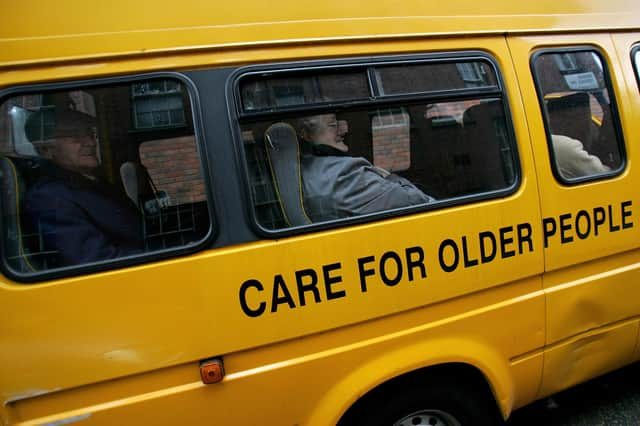Boris Johnson's National Insurance increase means poor people will fund care for wealthy pensioners, while Nicola Sturgeon's National Care Service plan is a cynical power grab – Alex Cole-Hamilton MSP


Medical science, better housing and healthy living are in large part responsible, but we are living far past the time that previous governments had budgeted for. While this is welcome, it leaves serious questions for those in power today as to how we fund the care of those who need it in later life.
Theresa May famously made the mistake of trying to use political capital to answer that question in the 2017 snap general election. She was consistently polling over 50 per cent and felt that she could use some of that cushion to have a difficult conversation with the British public about how we pay for care. And so it was, that she unveiled the ‘Dementia Tax’. It cost her the Tory majority and ultimately her job.
Advertisement
Hide AdAdvertisement
Hide AdPoliticians in both of our governments are still grappling with a solution for the future of care, and both are still getting it wrong.
Boris Johnson has decided to put the burden of additional funding for social care on the working population. By increasing National Insurance, he is taxing earnings rather than income – you don’t pay National Insurance on profits made from a stock-market portfolio.
As such and somewhat perversely, the social care of affluent OAPs will be paid for disproportionately by those who earn less. Even more perversely, those on the lowest wages are demographically less likely to live as long.
In Scotland, the SNP/Green nationalist coalition is trying to look busy on the matter with the creation of something they call the “National Care Service”. This is a cynical thing to call it considering that it is in fact a ministerial takeover of social care.
It's a branding exercise deliberately designed to sound like our most treasured national institution, the National Health Service but that is where the similarity ends. The NHS was forged in the rubble and poverty of war. For the first time, it offered medical care to every person in the UK, free at the point of delivery. It is the most successful model of socialised medicine in the world.
The proposals behind a National Care Service, however, will not see it offered free at the point of delivery. Nor will it see care ‘nationalised’ as it will still be provided by the private and charitable organisations who still account for the lion’s share of the market.
The naming of this project is a cynical attempt to win public support when, in all actuality, the delivery of care will suffer. This new model simply transfers powers from local authorities and local communities and gives it to ministers to determine what the shape of the care service looks like.
We need to reform social care, of that there is no doubt. But we need to reform it through paying care workers handsomely, dealing with market inconsistency and making care a profession of choice again, not by stripping decision-making power and money away from local care partnerships.
Advertisement
Hide AdAdvertisement
Hide AdFor all she wishes to be remembered with the same reverence as Nye Bevan, father of the NHS, Nicola Sturgeon’s National Care Service is a cynical power grab and nothing more.
Alex Cole-Hamilton is Scottish Liberal Democrat MSP for Edinburgh Western
A message from the Editor:
Thank you for reading this article. We're more reliant on your support than ever as the shift in consumer habits brought about by coronavirus impacts our advertisers.
If you haven't already, please consider supporting our trusted, fact-checked journalism by taking out a digital subscription.
Comments
Want to join the conversation? Please or to comment on this article.
